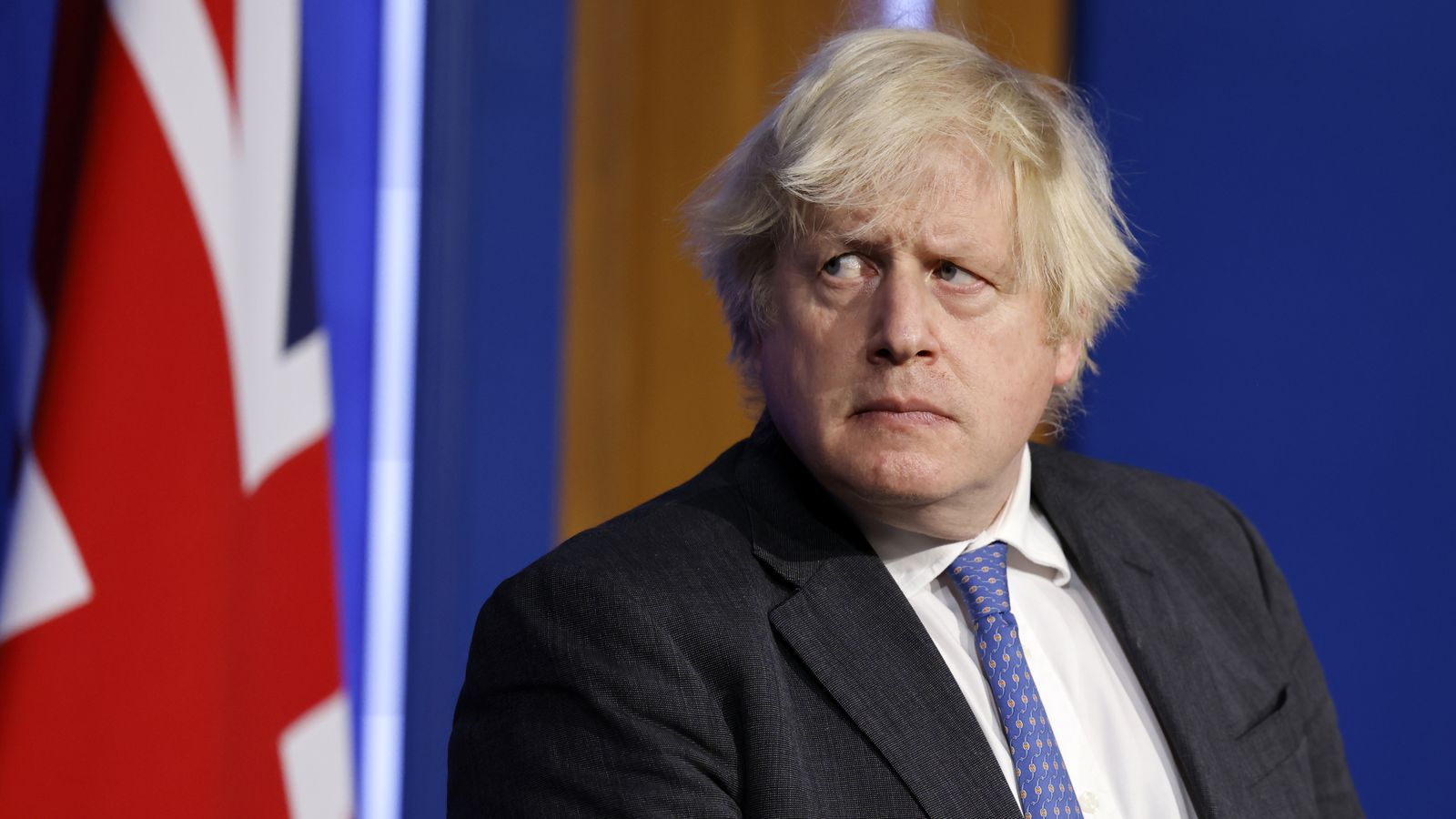After weeks of damaging allegations about parties inside No10 during COVID restrictions, the team around Boris Johnson is determined to turn the tide this week.
They know they face growing pressure from some Conservative MPs, disheartened at what they see as a major distraction from their ability to deliver for constituents and left cold by the prime minister’s apology to parliament.
Over the weekend, heads have been put together and a plan of sorts drawn up. There is still a big unknown – what Sue Gray’s report will conclude – but those inside Number 10 know it may not be published for over a week and their current response to questions over what happened won’t hold that long.
Over the weekend another Conservative MP, Tim Loughton, called for his boss to resign. Behind the scenes the sense that it’s when not if the prime minister leaves is growing and cementing itself.
Downing Street knows this is a big problem but those working around Mr Johnson haven’t given up, they still think they can convince MPs and voters he is the right man for the job. They are helped by a lack of clarity over who could succeed him and questions over how popular Labour’s Sir Keir Starmer really is.
The main focus will be on changing the culture among those who work at the heart of government, as well as a raft of policy announcements designed to show a leader pressing on with his agenda for the country.
Advisers hope changing the culture will be the route out of difficult questions over why parties seem to have been allowed to take place. They want to give the sense of a new government, without actually ushering one in.
BBC licence fee announcement ‘will be the last’, culture secretary Nadine Dorries says
Boris Johnson: Tory chairman Oliver Dowden ‘disgusted’ by Downing Street ‘partygate’ scandal and calls for culture change in Number 10
Downing Street parties: Boris Johnson faces further calls to resign over partygate as reports claim ‘mass clearout’ of Number 10 team
Please use Chrome browser for a more accessible video player
News that a suitcase had been wheeled to a local Co-op for alcohol during a rule-breaking party came as a surprise to everyone except those who have worked in or around Downing Street for years. The suitcase was a regular fixture, used for Friday night booze runs and joked about by successive press office staffers.
There have been numerous reports of civil servants who stored alcohol in disused fireplaces, special advisers who enjoyed beer and wine during Friday night “Spad school” and a culture where drinking at desks after a long day in the office was not just acceptable but encouraged. It is not new, or to those working inside government, surprising.
So culture change is the first lever those at the top will reach for in a bid to prove they understand and want to alter the way Downing Street runs. There are suggestions of an alcohol ban, although likely for staff and not official events held behind the famous black door. There could be stipulations on staying late to socialise and using the garden as a space to let off steam.
Please use Chrome browser for a more accessible video player
‘Something needs to change’
But culture change runs deeper than Friday evening drinks. It is about power, influence and popularity – all things that feature heavily in the heady fabric of life in Westminster. Younger staff members have spoken of feeling pressured into drinking by older civil servants who hold their careers in their hands.
Older heads who have worked around the top of government for years point to the long hours and high pressure as the reason why staff enjoy a quick drink together to decompress. Over the years, there have been numerous accusations of bad behaviour, bullying and unbearable pressure put on staff who feel they have nobody they can turn to for help.
Either way, those around the prime minister know something needs to change if it isn’t the man in charge; they need to be able to show the public they understand the fury.
Please use Chrome browser for a more accessible video player
But culture change at the top will involve more than just sacking senior staff or banning alcohol in the office and there are many within his party who believe that Mr Johnson himself is the driver of behaviour among his team.
One former cabinet minister called Mr Johnson “chaotic and deceitful”, it is not an uncommon view even among those who enjoy his company.
While he remains, they believe, changing the culture is impossible.






















